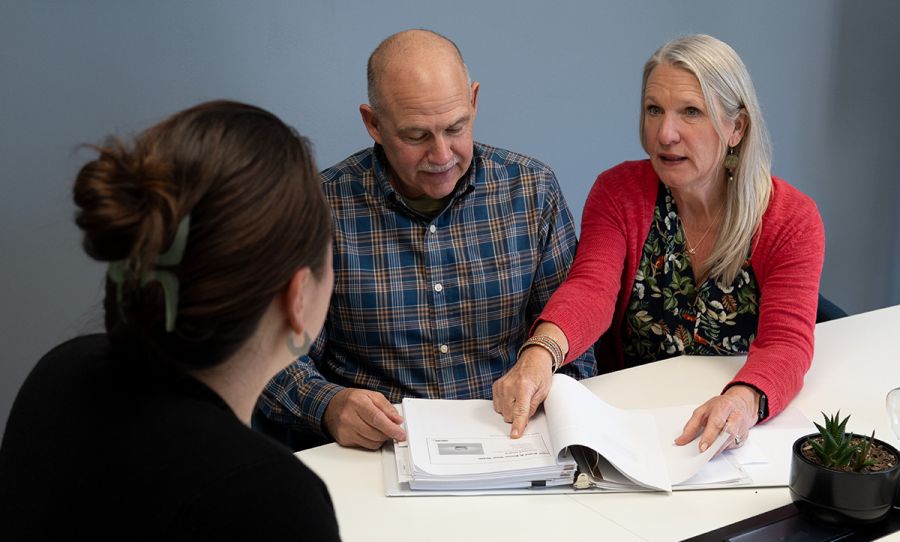
How does our system work?
The Landlord Medics (LLM) provides training for landlords throught our Boot Camp Modules.
Each module includes access to proprietary training material, forms, other helpful documentation matched to topics of the modules.
These documents should act as a base for understanding general concepts, and may be reviewed and adapted to fit best practices to your own state / locality.
How do you accomplish this?
Utilizing our 30 years of practical experience as landlords and investors, we have developed a very effective system, to help aspiring, new and established investors do the same!
Landlord Medics is developed with a single goal - Help landlords streamline business processes and save hundreds of hours a year, reduce costly problems to increase profits and promote healthy landlord-tenant relationships.
Bootcamp Overview
-
Module 1
You’re a Landlord… Now What?This module explores your mindset as a landlord and emphasizes the need to know the difference between treating your investment as a business rather than as a hobby. You will recognize the power and responsibility of being an entrepreneur and an effective landlord.
You will see just how critical it is to keep learning regardless of how many years you’ve been in the REI business. You will learn how to avoid common pitfalls and create efficient systems for success and prosperity.
Once you have an effective Landlord Mindset, you will understand not only how you got where you are, but more importantly, you will understand where you are going, what fuels your motivation, and how to achieve ultimate success as a landlord!
-
Module 2
Build Your Office & TeamThis module outlines who needs to be on your team, and the importance of interacting effectively with your team to produce the results you want to see. You will learn the importance of separating your personal and business interests and the pitfalls of failing to do so.
Do you need an attorney? An accountant? What kind of insurance do you need? How do you handle maintenance and repairs?
What should your office look like, and what forms and documents are critical? By setting up these processes for success, you will reduce stress, avoid litigation, save time, and protect your investment!
-
Module 3
Build Healthy RelationshipsThis module addresses the importance of good communication skills and conflict resolution.
You will learn how to keep good tenants, deal effectively and swiftly with problems as they arise (and they WILL arise!), and how to avoid lawsuits and litigation. You will become familiar with Landlord and Tenant Rights and will learn what to do when good communication fails to produce the results you need, and how to reduce as much as possible the negative effects of the conflict.When it comes to healthy relationships with tenants, an ounce of prevention is worth a pound of cure!
-
Module 4
Tenant Screening & SelectionThis module explains the importance of implementing a solid screening process when looking for a new tenant.
You will learn how to define your qualification standards to avoid discrimination and find good tenants. Doing so will result in reduced risk of liability, damage, and vandalism. We will address how using rental software can solve many problems and provide the landlord with an efficient system to perform many functions.The proper systems will produce fewer vacancies and lost rent. One bad tenant can cost you months of havoc and lost revenue… learn how to avoid this by knowing the process of how to make smart decisions!
-
Module 5
Lease Agreement & Moving InThis module demonstrates the importance of having a solid Lease Agreement. You will learn how everything that happens or doesn’t happen revolves around this legal document.
You will learn the different types and durations of leases and the multitude of components that make up a lease, including occupancy limits, inspections, maintenance, entry to the property, tenant responsibilities, safety, and guest policy.
Also addressed in the module is the importance of taking the proper steps with the tenant prior to handing over the keys, including security deposit, renter’s insurance, utilities, and much more.
By having a system in place to address new tenant orientation, you will learn to avoid mistakes that can be time consuming and costly.
Learn what you need to do to get off on the right foot to promote good tenant-landlord relationships and protect everyone involved from legal liabilities!
-
Module 6
Maintenance & RepairThis module addresses the huge responsibility that landlords face when dealing with the maintenance of the property.
You will learn how to decide between using a property maintenance company, doing it all yourself, or using a hybrid model.
We will also discuss how to handle maintenance requests, knowing about code enforcement regulations, lawn care/snow removal, and the importance of knowing your property.
There will be a detailed discussion on the importance of doing scheduled maintenance inspections, and what should be included in these inspections.
Putting the proper systems in place can make or break your investment!


